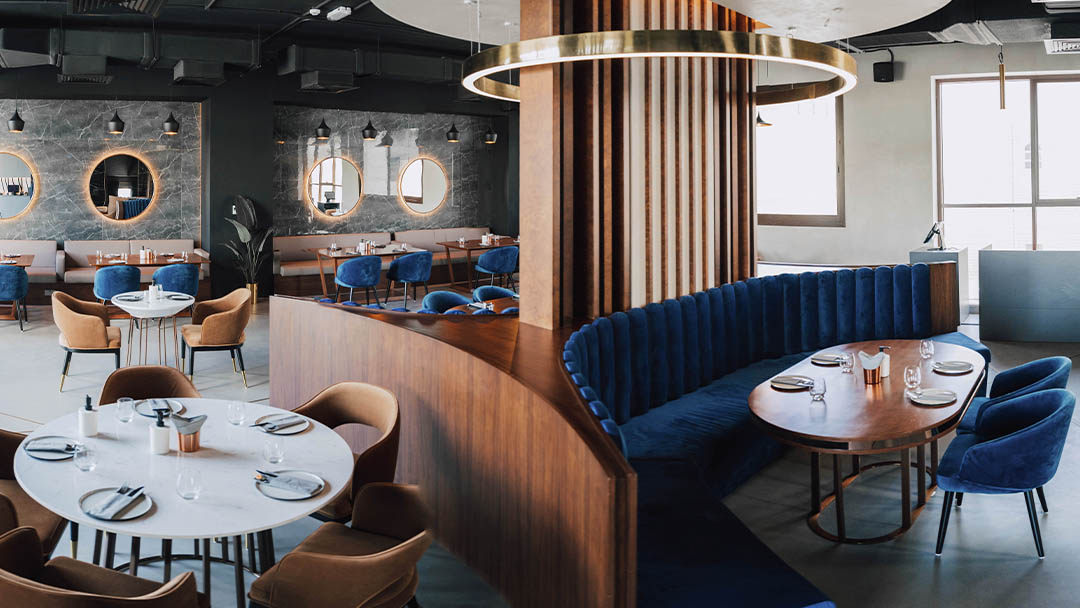Choosing a program that helps manage restaurant accounts is a good idea for those who want to save effort and time in managing their restaurant accounts whether financial or administrative Especially since all restaurants need to make inventory more frequently than other types of business, By learning how to manage restaurant accounts, you can make an actual inventory monthly, quarterly or even annually for your restaurant, Only you have to choose an intuitive and user-friendly system, but it offers a full range of financial reports and analysis, how? Read on.

Restaurant Accounting Concept
Restaurant accounting is the process of interpreting and analysing the restaurant's revenue, cash flow, inventory and income data, allowing you to document all your company's financial transactions and determine their performance. In this regard, good bookkeeping and accounting processes are essential for the smooth operation of the restaurant.
The management of restaurant accounts includes the following tasks:
- Recording transactions in the general ledger - the principal document for recording financial transactions.
- Accurate coding and classification of these transactions, especially expenses
- Analyze ledger and journal entries.
- Identify budgets and key performance indicators such as cost ratios for goods sold and initial costs.
- Track performance towards goals.
- Complete tax returns and provide advice and tax assistance.
- Accounts credited (i.e., invoice/invoice processing and vendor payment)
- Reconciliation of bank statements.
- Establishment of financial statements to determine financial health, including balance sheet, income statement and cash flow statement
It is worth mentioning that when adopting an effective catering program to manage effective restaurant accounts, you can use the catering accounting program to manage all your accounting needs, carry out the tasks mentioned and even more such as managing cash flow, time tracking, and creating professional invoices.
How does the catering accounting system work?
The catering account management system is a dedicated solution that automates and simplifies financial transactions, it integrates with POS systems (POS) to track real-time sales, manage payroll, monitor inventory levels to prevent inventory depletion or excessive demand, and by providing a range of financial reporting tools, it offers insights into cost control, profitability and performance measures, all vital to managing a successful restaurant.
Benefits of managing restaurant accounts
Many of the benefits of managing restaurant accounts and benefits that can help you manage the restaurant smoothly have been achieved through the adoption of the best program for restaurants and cafes, including:
Simplified Financial Transactions
The Restaurant Account Management System automates the daily processing of financial entries and reconciliations. This means spending less time manually entering data and more time available for strategic planning and customer service. Automating recurring tasks reduces the likelihood of human error, ensuring the accuracy and reliability of your financial statements.
Simpler data reconciliation
Using the catering account management software enables you to settle accounts at the end of the month with automated accounts already made on your behalf, moreover It also displays the entire data in a systematic format, allowing you to find all the information you are looking for in an easier way When you integrate the accounting software into the back network, it can automate the cash collection process and sales data from the Point of Sale programme and its reconciliation with the Reporting Unit.
Cost savings
One of the most important advantages of using restaurant account management programs is the cost savings that come with it, hiring a full-time accounting team can be expensive, especially for small and medium-sized restaurant businesses, this is where managing restaurant accounts can provide a cost-effective solution for restaurant owners looking to streamline their operations.
Basics of managing restaurant accounts
Knowing the basics of managing restaurant accounts is an important step that can bear fruit in helping you better understand your restaurant's accounting fundamentals and manage your finances. Below we will review the most important basics and steps of managing restaurant accounts:
1. Preparation of the account chart
Preparing your account chart to classify money flowing in and out of your business is one of the priorities of managing restaurant accounts assets, liabilities, expenditures, revenues and owner's rights, This is also divided into business subcategories or subcategories. inventory, sales and marketing, during the preparation of the accounts manual, it is important to determine the metrics you want to monitor, It is also important to adopt a robust restaurant management program that will make it easier for you to plan accounts to manage your restaurant accounts.
2. Accrual-based accounting
The accrual-based accounting component of restaurant account management ensures that there are no accounting errors and that nothing is overlooked. The settlement will confirm that you have taken all transactions into account and that your account balance is accurate. One of the best practices is to settle accounts payable before invoicing in your best restaurant accounting program.
3. Consider the cost of your restaurant
The Department of Catering Accounts requires considering your sales cost ratio in order to know your company's financial safety where you or your accountant should consider the cost-to-sales ratio, This is an important step to avoid accounting errors, reduce costs and increase profits and must bear in mind that occupancy expenses are fixed costs, In the sense that you cannot reduce its cost in order to increase profits as to the cost of your sold goods is the cost of your food and beverage stock, which is directly related to the profit you make from each dish sold.
4. Integration with POS point of sale software
POS point of sale software is the core of restaurant account management software, which is connected to all other tools in the system and data collection place, benefiting restaurant operations and benefiting business decisions, restaurant management system is a point of sale system (POS) can handle essential transactions, but it also supports and benefits you and your employees through other aspects of restaurant management, such as marketing, online ordering, loyalty and more.
Conclusion:
Managing restaurant accounts is a huge staple in any restaurant operation, it's necessary to control your costs, track operational finances, and make sure your restaurant performs well enough to achieve growth goals - let alone stay in business, holding restaurants accountable is key to opening up real business potential.
other topics:
reference
1. <<cloud servers>>، vmware
2. <<Sage Business Cloud Accounting Review and Pricing>>, business

Add New Comment